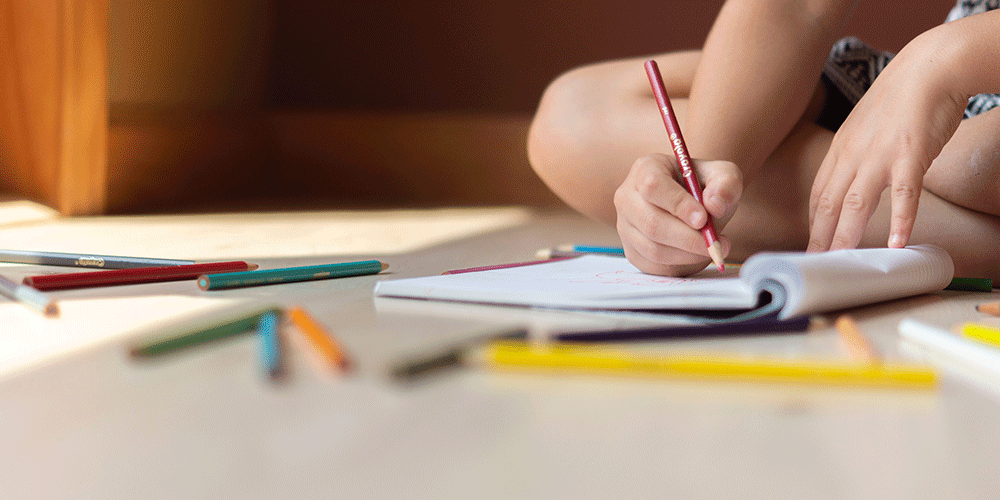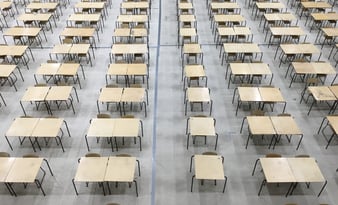Contents
The education system in the United Kingdom and the subjects in schools can be challenging to understand, especially for parents. 😕 As parents, to help your child learn and develop throughout their education, it’s vital that you know what to expect at every stage. Also, you must understand the different options when helping your child choose between subjects in school and help your kid decide what are the best subjects to study.💪
This article will talk about how the British education system works and what parents can expect at each stage of their children’s education in the UK
What are the subjects in schools in the UK?
The UK education system is divided into four main parts. These are:
- Primary education
- Secondary education
- Further education or university preparation
- Higher education - undergraduate and postgraduate
According to the law, children in the UK are only obligated to attend primary and secondary education. This means that legally, children have to attend school from about five years to 16 years of age. The other two parts of the education system are optional as children can choose whether to end school for further and higher education based on the career path they want to pursue in life. 👨💼
In addition to the four main parts mentioned above, the UK education system is also split into different key stages governed by the national curriculum, which discusses the different subjects in school that children must study throughout primary and secondary schools. The key stages can be broken down as follows:
- Key stage 1 - 5 to 7 years old
- Key stage 2 - 7 to 11 years old
- Key stage 3 - 11 to 14 years old
- Key stage 4 - 14 to 16 years old
The national curriculum sets the basic school curriculum for all primary and secondary school subjects that must be followed in the UK. This standard is set to ensure that all children learn the same things. Thus, all children in the UK are taught the ‘basic’ school curriculum that includes the national curriculum and other compulsory subjects in school such as subjects in science and religious education and sex education.
Let’s look at the different parts of the UK education systems and the subjects in school you can expect your children to be taught as per the national curriculum.
Primary education
In the UK, primary school education begins at the age of 5 and continues until the age of 11, when children move on to secondary school subjects.
Under the UK educational system, primary school education comprises key stage 1 (5 to 7 years old) and key stage 2 (7 to 11 years old). Typically, children studying key stage 1 are infants, whereas those studying key stage 2 are in the junior age range.
Wondering what your child will learn at school or what are the science subjects? Don’t worry. We are here to help!
At primary school, the compulsory subjects in school are:
- English
- Maths
- Science
- Design and technology
- History
- Geography
- Art and design
- Music
- Physical Education (PE)
- Computing
- Ancient and modern foreign languages (at key stage 2)
Moreover, all schools must offer religious education (RE) to all students. However, this is not a compulsory subject as parents can ask their children not to be taught either the entire subject in school or a part of it.
Furthermore, schools often also teach the following subjects:
- Personal, Social and Health Education (PSHE)
- Citizenship
- Modern foreign languages (at key stage 1)
The tests and assessments in primary school take place as follows:
- Year 2 (6-7 year old) - Children take the Standard Assessment Tests (SATs) for key stage 1. This assessment tests the children’s ability in maths and reading through informal exams that are not timed. In addition to English reading, there is also an optional test in English grammar, punctuation, and spelling.
- Year 6 (10-11 year old) - Children take the Standard Assessment Tests (SATs) for key stage 2. These tests are more formal than the tests for key stage 1. They test English (grammar, punctuation, spelling, and reading) and maths through examinations that are 45 minutes long.
These tests are not designed to measure whether your kid is failing or passing. Instead, they have been added to the education system to show the progress of children's skills and knowledge throughout the primary school years.
Years spent in primary school are part of children’s developmental stages, and as a parent, you must help them study and understand the foundational subjects of primary school education.
Moreover, in addition to the subjects in school, you should also help them develop by learning outside of school using different techniques.
Once your children have found a learning style that works best for them, it’s time for you to step back and let them become independent. As a parent, you must help them find ways to help them become independent and responsible.
Secondary education
Children in the UK begin secondary school subjects education at the age of 11. In the UK, secondary school subject education is split into Key stage 3 (11 to 14 years old) and Key stage 4 (14 to 16 years old).
As part of key stage 3, the children are taught the following subjects:
- English
- Maths
- Science
- History
- Geography
- Modern foreign languages
- Design and Technology
- Art and Design
- Music
- Physical Education
- Citizenship
- Computing
Furthermore, just like Key stages 1 and 2 in primary school education, schools must provide Religious Education (RE). In addition, they also need to provide Sex Education from key stage 3. However, just like in primary school education, parents decide whether they want their kids to study these subjects in school. Based on their choice, they can ask their kids to be taken out of the entire lesson or a part of it.
During Key stage 4, children are encouraged to work towards national qualifications like the General Certificate of Secondary Education (GCSEs), a qualification typically taken by most students in the UK at the end of secondary education.
Moreover, the compulsory subjects in school are divided into the ‘core’ and ‘foundation subjects’. The subjects included are:
- Core Subjects
- English
- Maths
- Science
- Foundational Subjects
- Computing
- Physical Education
- Citizenship
In addition to the core and foundational subjects, schools must also offer at least one subject from each of the following fields of study:
- Arts
- Design and Technology
- Humanities
- Modern Foreign Languages
Furthermore, they also need to provide religious education and sex education as part of the key stage 4 curriculum.
Further education
Once a student completes their primary and secondary education, they become eligible to start a 2-year program at the age of 16. Such programs are referred to as A Level or Advanced studies and eventually culminate in examinations. Here, a student specialises in 3 or 4 subjects related to what they want to study at university. Therefore, this acts as preparation for the future years that will be spent at university. These examinations are state-level exams and are recognised by all the universities in the UK and most institutions worldwide.
Higher Education - Undergraduate Degrees
In the UK, the first part of higher education is the Bachelor’s degree which usually takes three years to complete, and most of them are awarded at the honours level. Some examples of Bachelor’s degrees are as follows:
- Bachelor of Arts or BA
- Bachelor of Engineering or BEng
- Bachelor of Science or BSc
- Bachelor of Business Administration or BBA
Moreover, many state colleges in the UK offer 2-year vocational diplomas. Such courses exempt students from the first and sometimes even the second year of an undergraduate degree programme.
Furthermore, some private tutorial colleges enable students to complete their undergraduate degree within a year by taking up their one-year diploma programme, which is equal to one year of university. Such students are awarded second-year entry in some universities in the UK and worldwide.
At this stage of formal education, many children also take a gap year and prepare for examinations to get admission to the university of their choice. As a parent, you must help your child make the best decision according to their interests and requirements. 🤗
Higher Education - Postgraduate Degrees
In the UK, postgraduate degrees can be very intensive as they are typically shorter than the courses offered in other countries. Moreover, since a postgraduate degree consists of subjects with high-level content as it is a specialisation course, it can become quite challenging for students to cope with the UK curriculum.
Some of the postgraduate degree options available to students in the UK are as follows:
- Masters Degree - Typically takes 12 months to complete. However, there are high profile masters courses like Masters of Business Administration or an MBA that can take two years. Such courses are usually taken by students who have at least two years of work experience.
- PhD - A PhD is a degree that takes a longer time to complete as it involves an element of both professional work and high-level research at an institution. In the UK, a PhD research degree can take anything between two and seven years.
- Postgraduate Diploma - Some professions allow students to qualify quickly by doing a postgraduate diploma course which usually goes on for a short period in comparison to a Masters degree. For example, in the UK, teaching is a profession that has a Postgraduate Diploma course called PGCE in Education.
Wrapping Up
At first glance, the UK education system can seem complicated. However, with the information given in this article, you will be able to better understand the educational system in the UK and guide your children well through their formative years.
If you’re interested in exploring learning alternatives to schools or additional resources to assist your child, we recommend considering GoStudent’s varied offerings.










